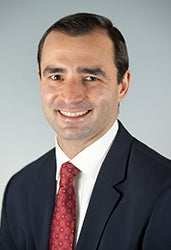As small businesses continue to navigate the post-COVID economic landscape, there is an often-overlooked sector of the economy potentially key to the revitalization of Main Street America: franchises.
Get Instant Access to This Article
Subscribe to Worcester Business Journal and get immediate access to all of our subscriber-only content and much more.
- Critical Central Massachusetts business news updated daily.
- Immediate access to all subscriber-only content on our website.
- Bi-weekly print or digital editions of our award-winning publication.
- Special bonus issues like the WBJ Book of Lists.
- Exclusive ticket prize draws for our in-person events.
Click here to purchase a paywall bypass link for this article.
As small businesses continue to navigate the post-COVID economic landscape, there is an often-overlooked sector of the economy potentially key to the revitalization of Main Street America: franchises. In 2023, the International Franchise Association predicted there will be 805,000 U.S. franchised businesses, with 11,000 of those in Mass., employing nearly 120,000 people.

Often perceived as big business, franchises are in fact small businesses, individually owned and operated by individuals and families. They span industries from pet care to home services, to lodging and early childhood education, to the well-known quick-service restaurant brands people are most familiar with, encompassing more than 300 lines of business. Massachusetts is home to several iconic franchise brands, including Dunkin’ and MaidPro.
Coming out of the pandemic, franchised businesses led the economic recovery, and growth is predicted to continue even as economic uncertainty persists. When aspiring entrepreneurs seek to open a franchised business, they sign a licensing agreement with a brand to use its name and processes to sell its products in exchange for a royalty or fees. Franchisees receive valuable training and support from their brand. The franchise owners then run their own businesses, employees, and customer relationships. The business model has proven resilient in tough economic times, such as benefiting from economies of scale to help control prices, and systemwide brand recognition to help recruit and retain employees non-franchise small businesses lack.

A Retailers Association of Massachusetts member survey showed 70% of small business members were looking to sell or retire within the next decade. Franchising could play a vital role in filling some of those voids. Because of low startup costs and a proven business model, franchises are appealing to people who may traditionally be disinclined to risk it all on a business venture. This is especially true for first-time business owners, women, veterans, and people of color. Almost 31% of franchises are owned by people of color, compared with 19% of other independent businesses.
At every level, these businesses offer opportunities for economic and career advancement. Franchisees offer high wages and quality benefits, including health insurance and vacation. For many employees, a job at a local franchise becomes a satisfying career as they climb the ranks faster than in other small businesses.
As we think about ways to keep the Massachusetts economy thriving, we should welcome new franchised businesses and all the opportunities they bring.
Jeff Hanscom is vice president of state and local government affairs for the International Franchise Association. Bill Rennie is vice president of the Retailers Association of Massachusetts.
